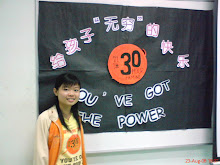Introduction
 EBSCOhost databases are the most-used, premium online information resources for tens of thousands of institutions worldwide, representing millions of end-users. The title lists that you can search here including Abstracts in Social Gerontology, Academic Search Alumni Edition, Academic Search Complete, Academic Search Premier and etc. The sources provided are journals, magazines, and other sources. Most of the information is in pdf and html form.
EBSCOhost databases are the most-used, premium online information resources for tens of thousands of institutions worldwide, representing millions of end-users. The title lists that you can search here including Abstracts in Social Gerontology, Academic Search Alumni Edition, Academic Search Complete, Academic Search Premier and etc. The sources provided are journals, magazines, and other sources. Most of the information is in pdf and html form.
 LISA stands for Library and Information Science Abstracts. It is a valuable reference tool for current awareness in information sciences. Comprehensive coverage allows access to past, present, and ongoing developments in librarianship, information science, online retrieval, new information technologies, and publishing.
LISA stands for Library and Information Science Abstracts. It is a valuable reference tool for current awareness in information sciences. Comprehensive coverage allows access to past, present, and ongoing developments in librarianship, information science, online retrieval, new information technologies, and publishing.
E-Learning Programs in Higher Education by Marie Gould 2008b
( search from Ebscohost )
This article is about e-Learning industry. Globalization has changed the way people look at education. e-Learning can assist in streamlining and improving the organizational processes and systems within higher education institutions.It benefits workforce employees as well. E-Learning including distance education, computer-based training, web-based training, Internet-based training, courseware delivery, and online learning and testing. The characteristics of distance learning are Instructors and students are physically separated, different types of media may be utilized, Instructors are not the only source for learning, and Interaction can occur between teacher and student, student and student, and groups of students.
Learning institutions must look at the trends affecting many of their students, faculty, administration and services. The trends are Student / Enrollment Trends, Faculty Trends, Academic Trends, Technology Trends, and Economic Trends.
Because of these emerging trends, seven distinct models of organizational structures in higher education have surfaced. These models will serve as a foundation for different trend references and as an illustration of how different types of educational institutions develop strategic plans for implementing distance education into their programs. The models included Extended traditional university, For-profit adult-centered university, Distance education/technology-based university, Corporate university, University/industry strategic alliances, Degree/certification competency-based university, and Global multinational university.
Summary of Article 2:
ICT Inclusion and Gender: Tensions in Narratives
of Network Engineer Training
By Hazel Gillard, Nathalie Mitev, and Susan Scott
Department of Information Systems, London School of Economics and Political Science,
London, United Kingdom
( search from Ebscohost )
ICT skills training offers inclusion into the new economy. This article focus on private–public training initiative and its impact on the socially excluded, specifically lone women
parents. ICT skills development initiatives designed to support lone women parents are simultaneously working in opposition to broader policy goals.
The concept of the digital divide is often understood as the division between those who have access to the new communication technologies and those who don’t. Ahuja (2002) maintains that to counter the digital divide, should have computer training and structural support to reduce the negative effect of social expectations on attitudes toward women and computers. Work–Life Balance, an initiative launched by the government in 2000, was presented by delegates as “the right way forward” to facilitate women’s inclusion to the skilled ICT workforce.If work–life balance initiatives fail to seriously address flexible working arrangements for women and carry on embedding traditional perceptions of family and child care, then those who stand outside the norm will have little chance of ICT employment and continue to be marginalized.
Some practical suggestions are to support and prepare women for the frank reality
of the long hours working environment, and equip the student to challenge the embedded technocultural discrimination many have experienced, and continue to experience. It is not enough to expect women to instigate change themselves; the isolated and often unconfident woman will tend to ignore discrimination in an attempt to become accepted in the community of practice. Through a range of narratives, this research reveals a commonality for socially excluded women in their efforts to improve their circumstances.
The gender literature has a well established tradition of using field narratives, a genre from which research in ICT and gender can greatly benefit.
http://web.ebscohost.com/ehost/pdf?vid=4&hid=103&sid=6ba5008c-50be-4ca4-935d-92403965240c%40sessionmgr104












No comments:
Post a Comment